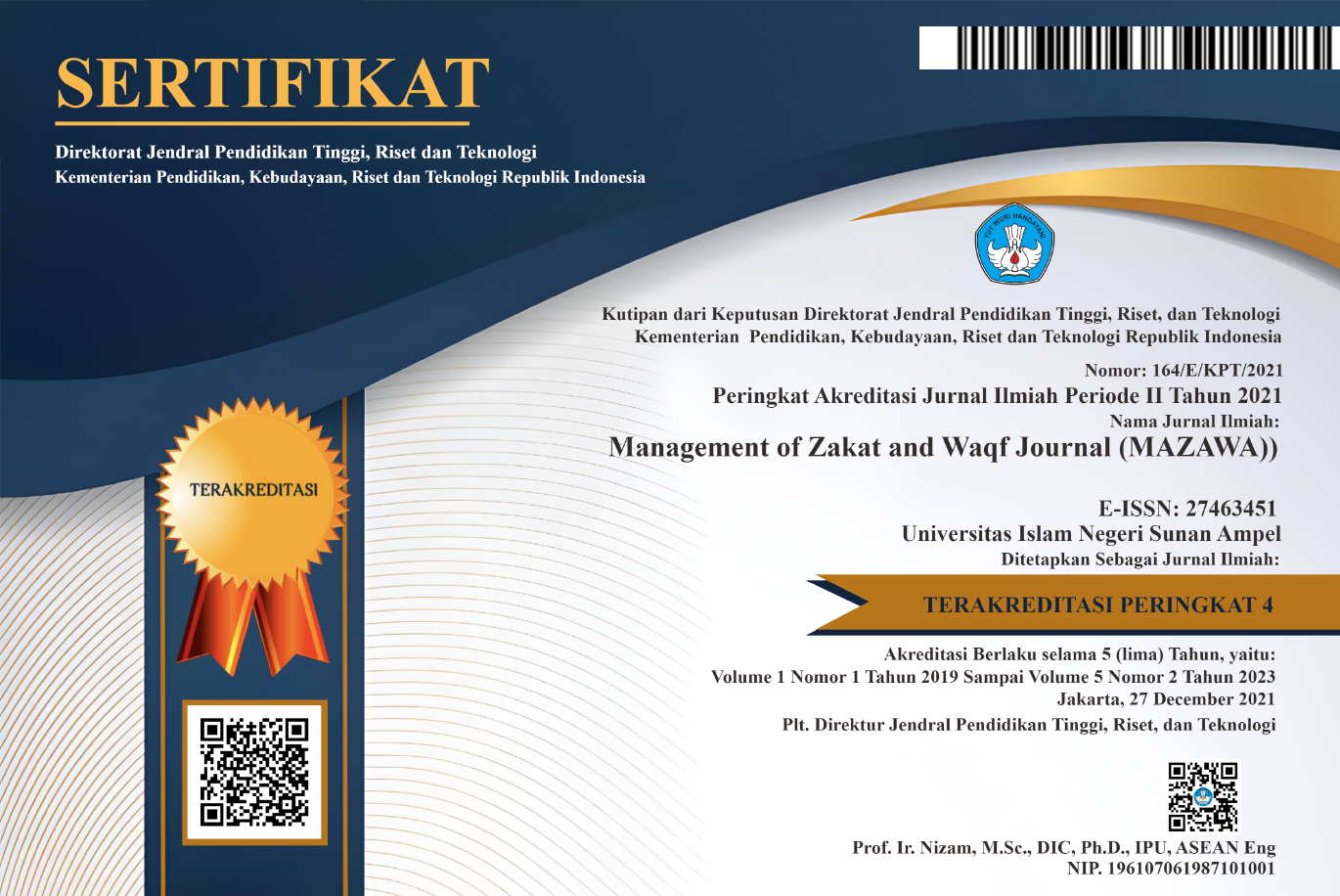Development of Impact Evaluation on Zakat Fund Utilization Program Using Social Return on Investment (SROI)
DOI:
https://doi.org/10.15642/mzw.2023.4.2.200-221Keywords:
Social Return On Investment, Productive Zakat, Zakat Fund UtilizationAbstract
The accuracy of the formulation of the zakat fund utilization program still has not found effective results. This is because the evaluation measuring instruments are classic and conventional. Even the program is left without evaluation of the results. Every financial institution should have modern measuring instruments capable of controlling and ensuring its success. This study aims to analyze the implementation of the program and the social rate of return of the Tangguh Cart program at LAZNAS Daarut Tauhiid Peduli Surabaya. This success impact measurement instrument uses the Social Return On Investment (SROI) model. This study found that there are 8 impacts resulting from the program, namely increasing the income of members of the tough cart business group, increasing the business assets of the tough cart group, increasing knowledge and skills in running a business, improving communication and organizational skills, increasing business creativity, increasing awareness and ability to give some of its sustenance to others, improving the beauty and cleanliness of the environment, and increase operating income. The greatest impact value is derived from the impact of increasing the income of members of the resilient cart business group. The results showed that the value of social returns reached a ratio of 2.57:1, meaning that every Rp 1 invested would provide a profit of IDR 2.57 for stakeholders
Downloads
Downloads
Published
How to Cite
Issue
Section
License
Copyright (c) 2023 Dina Anisya Rufaedah, Nita Yalina

This work is licensed under a Creative Commons Attribution-NonCommercial-ShareAlike 4.0 International License.





